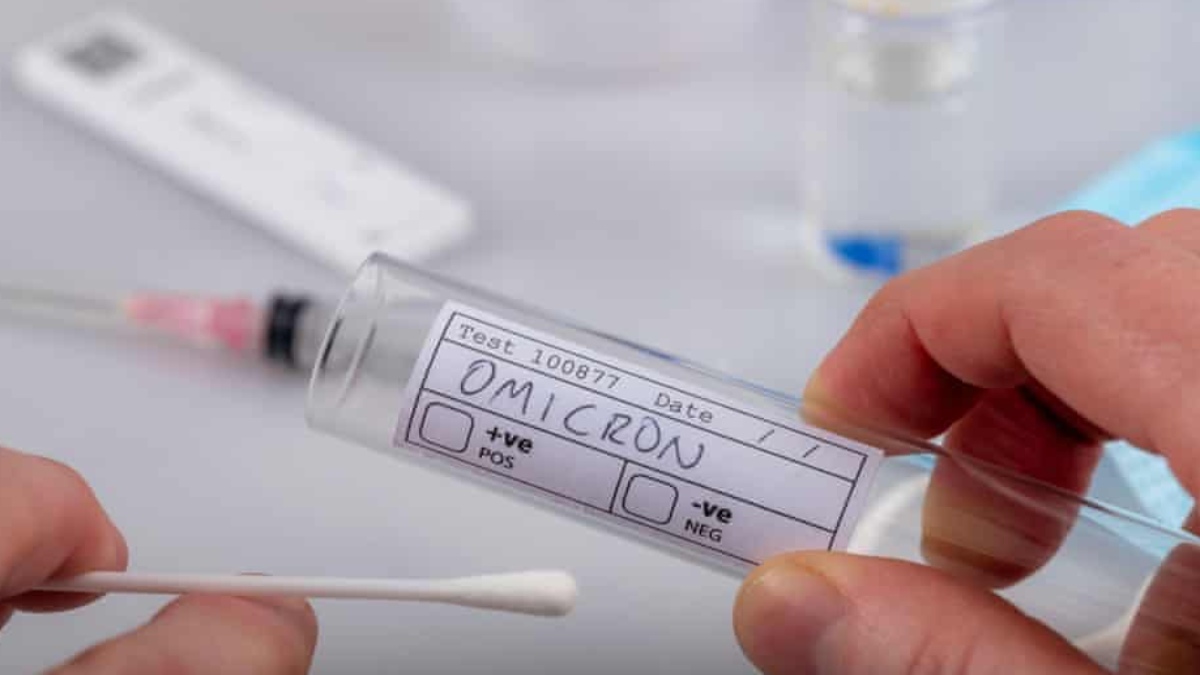


Dr V.K. Paul, Member-Health of NITI Aayog, on Friday expressed concern over the decline in the use of face masks in the country and said that the World Health Organisation (WHO) has warned against it as the global scene of the Omicron variant of COVID-19 is disturbing.
Paul also said that India needs to remember that both COVID-19 vaccine and face masks are important. “Mask usage is declining. We have to remember that both vaccines and masks are important. We should learn from the global situation,” said Paul while addressing a health briefing.
“WHO is warning against the decline in mask usage. The global scene of Omicron is disturbing,” he added.
As far as protection capability is concerned, Paul said that India is now operating at a risky and unacceptable level.
“We have to remember that both vaccines and masks are important. It is not the time to remove masks yet,” reiterated Paul.
Further, he said, “The United Kingdom and France are experiencing a massive wave due to this variant. The pandemic caused by the virus is full of surprises and unexpected turns, so it is very important to protect yourself from it.”
Talking about the effectiveness of the COVID-19 vaccines against the Omicron virus, Paul said that it is effective against all variants. “The variants aren’t so smart yet that they can surpass the vaccine protection,” he said.
The Director-General of the Indian Council of Medical Research (ICMR), Bal ram Bhargava added that regular meetings are being organised to keep a watch on the global scenario and Covid scene in India with a focus on Omicron.
“We need help to not spread panic. District level restrictions to be implemented where positivity over 5%,” he added.
India has reported 25 cases of the Omicron variant of COVID-19 but none of the patients have reported severe symptoms, Union Health Ministry’s Joint Secretary Lav Agarwal said on Friday. However the number later was reported to have gone up to 32, after Maharashtra reported seven Omicron cases.
The Joint Secretary added that the symptoms in all detected cases are “mild” and account for 0.04% of the total variants detected.
Pressing on the need to strictly follow the COVID Appropriate Behaviour (CAB), Agarwal said, “World Health Organisation (WHO) has highlighted that the public health measures should be abided by on a continual, besides vaccination. Adequate precautions have to be followed…Laxity in public health measures is leading to a surge in cases in Europe.”
Further, he said that only two countries had reported Omicron cases till November 24, which has now risen to 59 countries.
“These 59 countries have reported 2,936 Omicron cases. Besides this, 78,054 probable cases were detected. Their genome sequencing is underway,” Agarwal said.
Talking about overall COVID-19 cases in India, Agarwal said that the overall positivity rate was at 0.73% in the last week.
He also added that fewer than 10,000 daily cases have been reported in India in the last 14 days; of which the active cases were highest in two states, Kerala and Maharashtra with over 43% active cases in the former and over 10% in the latter.
Meanwhile, all the nine patients who were infected with the Omicron variant of coronavirus and were admitted to a hospital in Jaipur, have tested negative for COVID.
The patients were discharged from the RUHS Hospital. According to the state health department, all nine patients are completely healthy and asymptomatic. Their blood, CT scan and other tests are normal. The doctors advised them to remain in home quarantine for seven days.
Rajasthan Health Minister Parsadi Lal Meena said that the department was quite alert and vigilant since the news of the novel variant of coronavirus.
Amid the ongoing spread of Omicron variant around the world, a UN health agency panel on Thursday said that early laboratory data on the effectiveness of existing vaccines against the new COVID-19 variant is useful, but it is still unclear how effective these will be in treating severely sick patients.
This comes following reassurance from the WHO that available vaccines “hold up very well” in protecting people from the worst forms of coronavirus sickness for six months or more. “The neutralization data has an underpinning, but it’s really the clinical data that are going to be most influential about how to manage an Omicron situation,” said Dr Kate O’Brien, Director, Department of Immunization, Vaccines and Biologicals at WHO.
Dr O’Brien said that collective immunity remained out of reach, partly because the vaccines in circulation today, for all their efficacy, were “not performing at the level where the concept of herd immunity is likely to be something that can be achieved”.
This was at least in part because of the lack of universal vaccine coverage which has seen wealthier countries benefit from immunization campaigns, while poorer nations have suffered a dearth of lifesaving jabs, Dr O’Brien was quoted as saying by UN News.
On so-called “breakout infections” among individuals already vaccinated, it was “not surprising” that these had increased in line with greater vaccination coverage, the WHO official insisted.
“That does not mean the vaccine is not working, it simply means that a greater and greater number of people have actually been vaccinated.”
As Omicron spreads, Dr O’Brien highlighted that those most at risk remained the unvaccinated, who represented 80 to 90% of those who have fallen seriously ill from coronavirus.